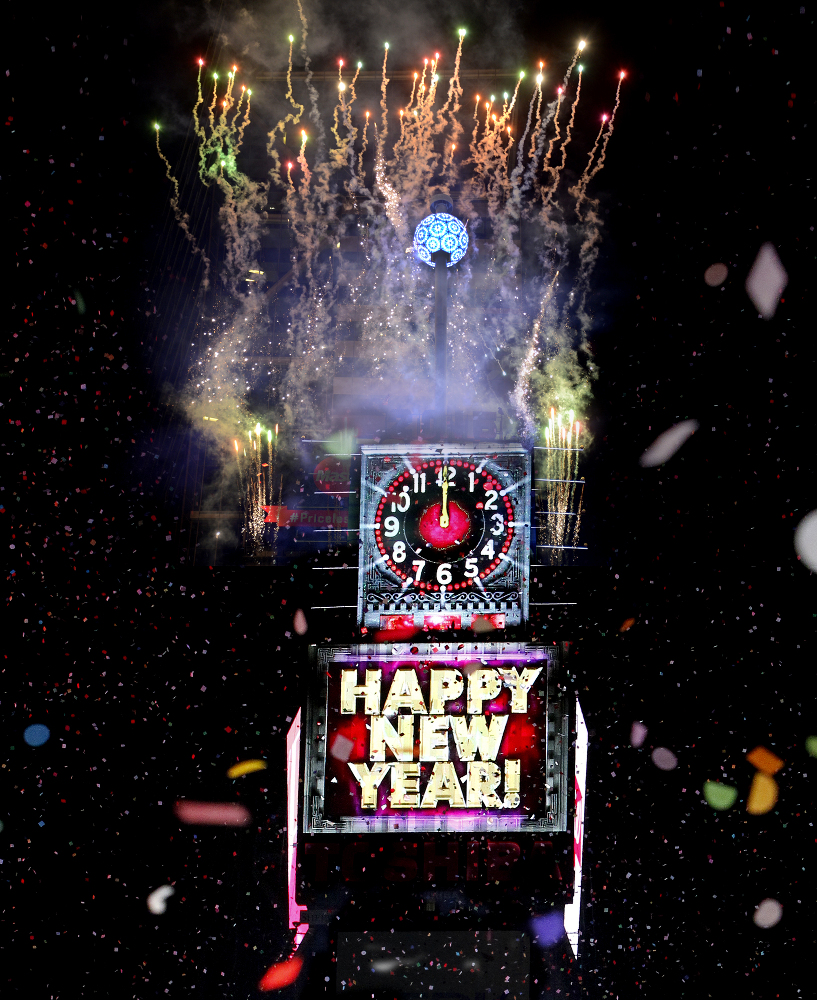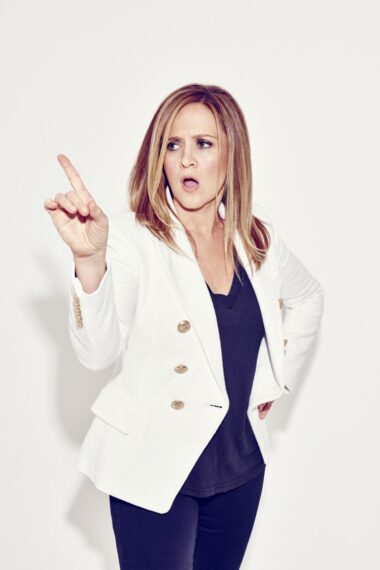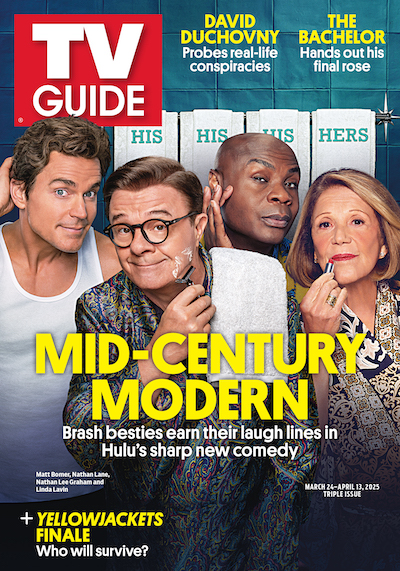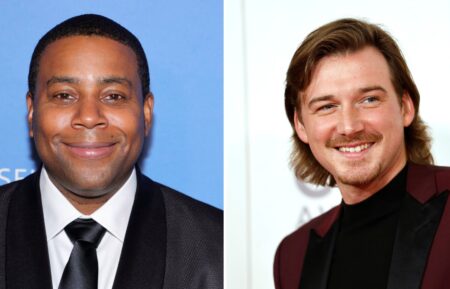Will the TV Bubble Burst? Can TNT and USA Evolve? And More Burning Questions for 2016

Just one year ago, Fox’s megahit Empire was about to premiere; Brian Williams was NBC’s top news anchor; Donald Trump hosted The Celebrity Apprentice; streaming service HBO Now hadn’t yet launched; and Jon Stewart and David Letterman were still in late night.
The year 2015 was a transformative one for television, and 2016 promises to be just as revolutionary. Here are a few potential game changers to keep an eye on in the coming months.
Will the programming bubble finally burst?
FX Networks CEO John Landgraf led the media conversation in 2015 when he proclaimed to reporters that there were too many scripted TV series for the industry to sustain, given the finite number of potential viewers and advertising dollars. (It wasn’t a new notion, as a 2013 TV Guide Magazine cover even asked, “Is There Too Much TV?”) He bolstered his argument in December, as FX’s research team tallied a combined 409 scripted series on broadcast, cable and streaming networks this year–up from 217 just five years ago. And that doesn’t even count all the original unscripted, news, sports and kid series.
Will the number go even higher? “I’m not sure that we’ve hit peak yet,” says Showtime Networks president and CEO David Nevins. “We still don’t feel like we’re at our maximum number. We’re still getting bigger. I do think there will be some people who pull out of the programming business. But for everyone who pulls out there are going to be three more trying it. It’s still a bit of a land grab in the new environment.”
Fargo executive producer (and former NBC Entertainment president) Warren Littlefield thinks fewer outlets will be in the original scripted series game, as “there’s no financial equation to support that.” Already, Microsoft Xbox and Yahoo Screen have entered, then exited, the arena, and others are expected to follow.
But as growing titans like Netflix, Amazon and Hulu continue to expand their output, “I’m not sure we’re going to get much of a reduction in 400 scripted series,” he adds.
TNT and USA are changing focus–can they stop their ratings slides?
It’s been a rough year for many basic cable networks, as eight of the top 10 networks among viewers age 18-49 suffered year-to-year declines. Among those dipping the most: History, USA, FX and TNT. Both USA and TNT are in the midst of dramatic brand makeovers, hoping to draw a younger audience and generate more buzz by moving away from “blue-sky” series (like Royal Pains and Rizzoli and Isles) into edgier, younger-skewing fare. USA got off to a strong start last summer with critics’ fave Mr. Robot, and TNT is planning a new slate with shows like Good Behavior, starring Downton Abbey‘s Michelle Dockery as a sexy ex-con, and Animal Kingdom, featuring Ellen Barkin and Scott Speedman as the heads of a family of criminals.
TNT original programming executive vice president Sarah Aubrey says both shows “define the new direction of TNT.”
One high-profile talent agent tells us he’s bullish on the executives steering both USA and TNT–but he’s realistic about how the new shows might perform. “Ratings will tumble,” he says. “Big time. But awards and buzz will fill in. See Mr. Robot. It’s much smaller than Royal Pains.”

Can Vice successfully translate its brand into a network?
Behold the power of traditional media: Vice Media, known for its cutting-edge videos and news coverage, is getting into the old-fashioned linear channel business. A+E Networks (the joint venture between Disney/ABC and Hearst that owns A&E, Lifetime and History) will flip its low-performing H2 channel into Viceland this February. The channel’s original slate, overseen by writer/director Spike Jonze, includes the unscripted series Gaycation (with actress Ellen Page) and Huang’s World (with celebrity chef Eddie Huang).
Vice cofounder Shane Smith says the network will also experiment with new forms of TV advertising. Viceland will be available in 70 million U.S. homes; Smith hopes to then roll the channel out globally. Vice’s news output will remain on HBO, where it will launch a daily news show in 2016. “They’re iconoclasts with a real passion for storytelling,” says HBO CEO Richard Plepler.

Samantha Bee
Will viewers embrace a female late-night host?
The late-night shake-up of 2015 revolved entirely around men. In 2016, the talk-show gender imbalance will see a slight improvement: The Daily Show alum Samantha Bee premieres her new TBS series, Full Frontal, and Chelsea Handler, who left her E! series, Chelsea Lately, in 2014, will launch a talk show for Netflix. Details for Handler’s series remain under wraps, although the host promises it will be markedly different from her previous one. If the early promos for Bee’s program are any indication, Full Frontal will focus on topical humor, just in time for the presidential campaign.
John Ferriter, who runs the management/production firm The Alternative, says he’s optimistic about both hosts’ new endeavors. “I’m looking forward to Samantha, and have always been a fan of Chelsea,” he says. “I’m curious to see if her Netflix experiment works. Can she bring her audience back and get another audience not being handcuffed the way she thought she was handcuffed at E!? There has never been a better time for late night. It’s fertile ground.”

Will TV’s thirst for nostalgia be satisfied?
Franchise mania is alive and well, as Fox brings back The X-Files, Netflix reboots Full House and Gilmore Girls, Showtime revisits Twin Peaks and History/A&E/Lifetime remake Roots. These shows generate buzz and attention, cutting through the clutter of the “too much TV” universe. “Those revivals and reunion episodes were always a real staple in television when I was growing up,” Netflix content chief Ted Sarandos told us earlier this year. ““How many Brady Bunch revivals and Gilligan’s Island reunions were there? It was always a cool novelty. I love the notion of it.”
Plus…
Will virtual reality catch on with programmers? What will Jon Stewart do as part of his new deal with HBO? How and when will Apple enter the streaming-TV space? Will Disney announce a Star Wars TV show? How will the government’s spectrum auction impact over-the-air TV and will some digital networks go away? What happens to Viacom’s cable channels (like MTV and Comedy Central) and CBS if ailing Sumner Redstone, who runs both, is no longer in charge? How will Nielsen’s new total audience measurement–which will include mobile, PC, tablets and connected TV devices like Roku in addition to live, DVR and VOD usage–change the industry?
From TV Guide Magazine
How Hulu's 'Mid-Century Modern' Is a 'Golden Girls' for Our Times
Settle in for some older and bolder laughs with the BFFs of a certain age in the new comedy starring Nathan Lane, Matt Bomer, and Nathan Lee Graham. Read the story now on TV Insider.








